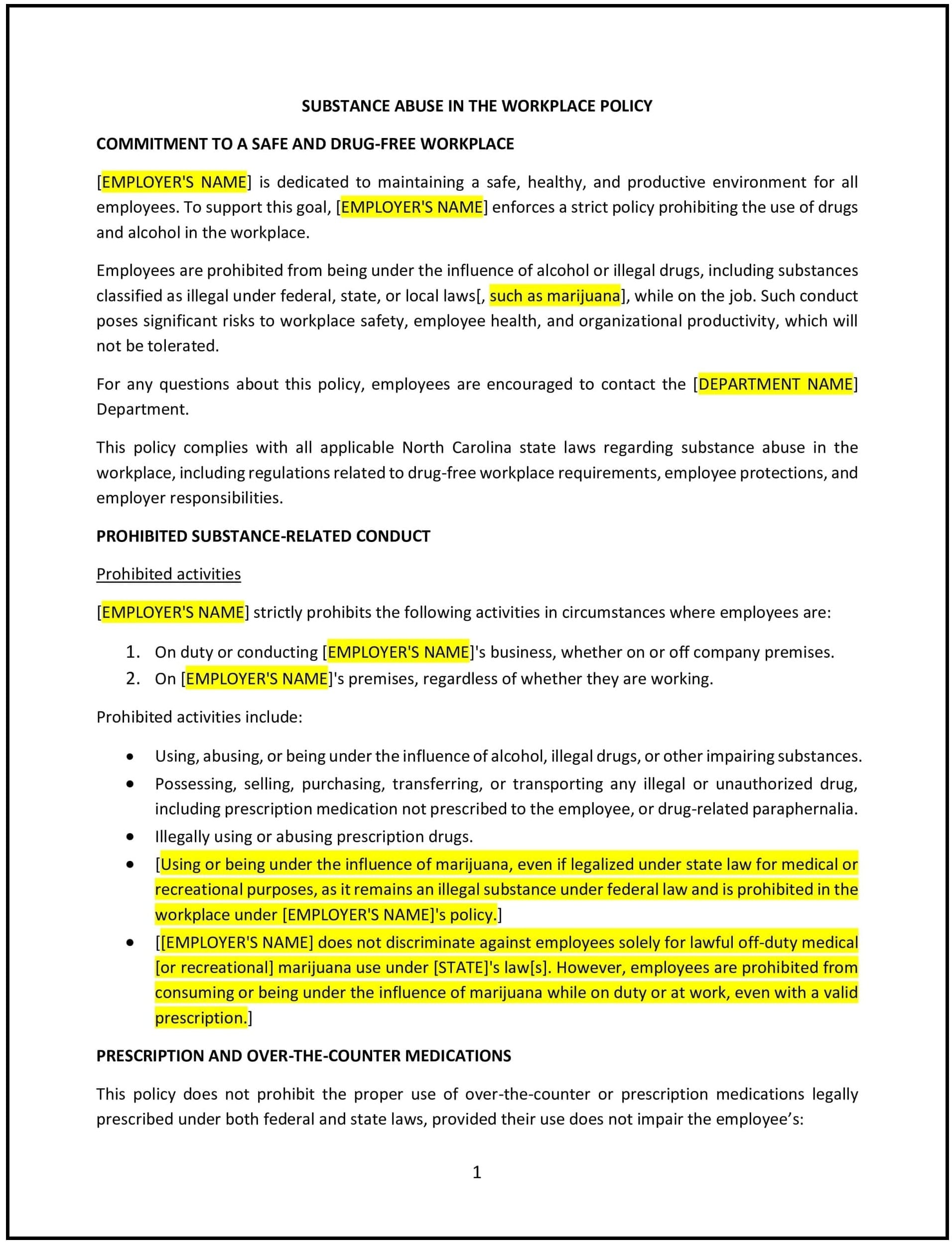Substance abuse in the workplace policy (North Carolina): Free template
Got contracts to review? While you're here for policies, let Cobrief make contract review effortless—start your free review now.

Customize this template for free
Substance abuse in the workplace policy (North Carolina)
A substance abuse in the workplace policy helps North Carolina businesses maintain a safe and productive work environment by addressing the issue of substance abuse. This policy outlines the company’s expectations regarding the use of drugs and alcohol at work, the procedures for testing and reporting, and the consequences of violations. It aims to promote employee safety, reduce risks, and support employees in maintaining a drug- and alcohol-free environment.
By adopting this policy, businesses can safeguard workplace safety and support compliance with North Carolina’s laws regarding drug testing and substance abuse.
How to use this substance abuse in the workplace policy (North Carolina)
- Define substance abuse: Clearly define what constitutes substance abuse, including the use, possession, or distribution of illegal drugs and the misuse of alcohol or prescription drugs during work hours.
- Set testing procedures: Specify whether the company conducts drug or alcohol testing and the circumstances under which testing is required, such as pre-employment, random testing, or after an accident.
- Establish reporting requirements: Outline how employees should report substance abuse or violations of the policy, including procedures for self-reporting or reporting a coworker’s behavior.
- Set disciplinary actions: Define the consequences for employees found in violation of the policy, including suspension, mandatory rehabilitation, or termination for severe cases.
- Reflect North Carolina-specific considerations: Ensure the policy complies with North Carolina’s substance abuse laws, including any regulations governing testing or employee rights.
Benefits of using this substance abuse in the workplace policy (North Carolina)
This policy provides several benefits for North Carolina businesses:
- Enhances safety: A drug- and alcohol-free workplace reduces the risk of accidents, injuries, and impaired performance, promoting a safer environment for employees.
- Reduces legal risks: A clear substance abuse policy helps the company comply with state and federal drug testing laws and reduces the risk of legal claims related to discrimination or wrongful termination.
- Improves productivity: Employees who are free from substance abuse are more likely to be focused, reliable, and productive, contributing to the overall success of the business.
- Supports employee well-being: The policy can provide support for employees struggling with substance abuse by offering assistance programs or rehabilitation services.
- Strengthens company reputation: A substance abuse policy demonstrates the company’s commitment to employee safety and well-being, enhancing its reputation as a responsible employer.
Tips for using this substance abuse in the workplace policy (North Carolina)
- Communicate the policy clearly: Ensure that all employees understand the substance abuse policy, the testing requirements, and the consequences for non-compliance.
- Offer support: Provide employees with access to assistance programs, such as counseling or rehabilitation services, to help those struggling with substance abuse.
- Monitor compliance: Regularly review substance abuse testing practices and ensure they are applied consistently and fairly.
- Review the policy regularly: The policy should be reviewed annually to ensure it complies with North Carolina’s substance abuse laws and aligns with the company’s safety standards.